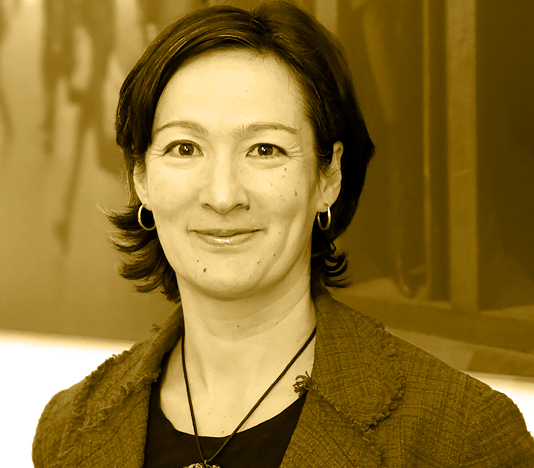It’s about knowing when to say something: I believe in ‘quiet leadership.’"
Madelyn Postman

For Madelyn Postman ’90, a commitment to protecting the planet goes back to her years at Exeter, when her friend Scott Heald ’88 made an offhand comment — “Out of sight, out of mind” — as Postman threw something in a nearby trash can. “I realized that our waste doesn’t just disappear when you throw it away,” Postman says. “That has stuck with me all these years.”
More than three decades later — after experience working as an in-house creative at Gucci Group and consulting for brands such as Burberry, Sunglass Hut and Nokia — Postman has merged her core interest in sustainability with her expertise in branding and marketing as co-founder and director of Grain Sustainability, a management consultancy with a mission to help businesses “become champions for the planet.”
The new company builds on Grain Creative, a branding and design agency Postman ran alongside her husband, Christoph Geppert. The agency merged with Leidar, an international communications consultancy, in 2018, and Postman began working as the managing director there. But when the COVID-19 pandemic hit, and Postman found herself in lockdown with Geppert and their two children in their home near London, she realized she needed to make a change.
“I was able to step back a bit and think, do I really want to be doing this?” Postman recalls. “There’s always this desire to not just be a vessel for clients’ work, but to really try to change things more fundamentally.”
In late 2020, Postman and Geppert left Leidar to found Grain Sustainability. In their new roles, she says, “we can really work with the fundamental day-to-day operations of a company to ensure that it’s more sustainable.” Clients include companies in the education, technology and transportation fields, both in the United Kingdom and abroad. “Often with tech, you think there can’t be a big impact — everything’s in the cloud,” Postman says. “But there can be both environmental and social impacts, depending on what the company is doing.”
That lightbulb moment by the trash can wasn’t Postman’s first exposure to the concept of sustainability.
Growing up in San Francisco, she became aware early on that water was a scarce, valuable natural resource. During her four years at Exeter, she remembers joining Amnesty International and participating in protests against the newly constructed nuclear plant in Seabrook, New Hampshire.
Postman considered pursuing environmental studies at Brown University before deciding instead on a double major in visual arts and art history. She spent her junior year abroad in Bologna and ended up staying for the next eight years, working for various design firms before landing the job at Gucci. She returned to the United States only to complete her degree at Brown in late 1994.
Her experience in Italy introduced Postman to what seemed like a more sustainable way of life — one that felt less tied to the ubiquitous consumption that she had come to find oppressive. “I remember just feeling a bit depressed when I walked into a big store full of stuff,” she says. “In Italy, you go to the market and buy fresh fruit and vegetables in paper bags. There aren’t as many big chain stores as in the U.S. and the U.K. I look back on those years a bit wistfully, thinking that’s the way we should all be shopping now.”
Postman moved to London with Gucci Group in 2000, but left two years later to co-found the design firm Vivian Cipolla. Before joining Grain Creative, she established her own agency, Madomat, which focused on providing art direction, graphic design and 3D design with a focus on eco-friendly materials.
In addition to her work with Grain Sustainability, Postman is on the U.K. steering committee for 1% for the Planet, a movement that encourages businesses and individuals to contribute at least 1% of their annual turnover or income to environmental causes. She’s also working on a narrative nonfiction book, Sixteen Stories, based on her family’s roots in China, Poland, Lithuania and California.
Postman credits her Harkness experience with preparing her as a frequent commentator on branding and business for BBC World and a public speaker at universities, business schools and other venues — and in the corporate world in general. “As a woman, being articulate and having the confidence to speak up really helps,” she says.
Harkness also helped her understand early on the different ways people can show leadership. “Saying what you think is part of it, but you don’t always have to be talking just for the sake of it either,” Postman points out. “It’s about knowing when to say something: I believe in ‘quiet leadership.’”
— Sarah Pruitt ’95
Editor’s note: This article first appeared in the winter 2021 issue of The Exeter Bulletin.